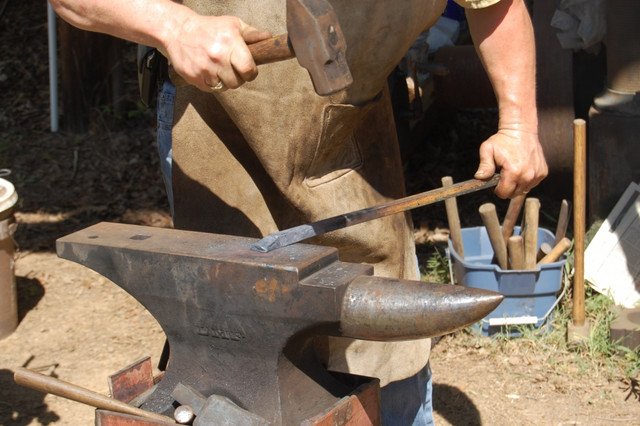Thus at the flaming forge of life
THE VILLAGE BLACKSMITH

Under a spreading chestnut tree
The village smithy stands,
The smith, a mighty man is he,
With large and sinewy hands;
And the muscles of his brawny arms
Are strong as iron bands.
His hair is crisp, and black, and long,
His face is like the tan;
His brow is wet with honest sweat,
He earns whate'er he can,
And looks the whole world in the face,
For he owes not any man.
Week in, week out, from morn till night,
You can hear his bellows blow;
You can hear him swing his heavy sledge,
With measured beat and slow,
Like a sexton ringing the village bell,
When the evening sun is low.
And children coming home from school
Look in at the open door;
They love to see the flaming forge,
And bear the bellows roar,
And catch the burning sparks that fly
Like chaff from a threshing-floor.
He goes on sunday to the church,
And sits among his boys;
He hears the parson pray and preach,
He hears his daughter's voice,
Singing in the village choir,
And it makes his heart rejoice.
It sounds to him like her mother's voice,
Singing in paradise !
He needs must think of her once more,
How in the grave she lies;
And with his haul, rough hand he wipes
A tear out of his eye.
Toiling, -- rejoicing, -- sorrowing,
Onward through life he goes;
Each morning sees some task begin,
Each evening sees it close.
Something attempted, something done,
Has earned a night's repose.
Thanks, thanks to thee my worthy friend,
For the lesson though hast taught;
Thus at the flaming forge of life
Our fortunes must be wrought;
Thus on its sounding anvil shaped
Each burning deed and thought.
Henry Wordsworth Longfellow - (1807 - 1882)


 Votes : 0
Votes : 0









